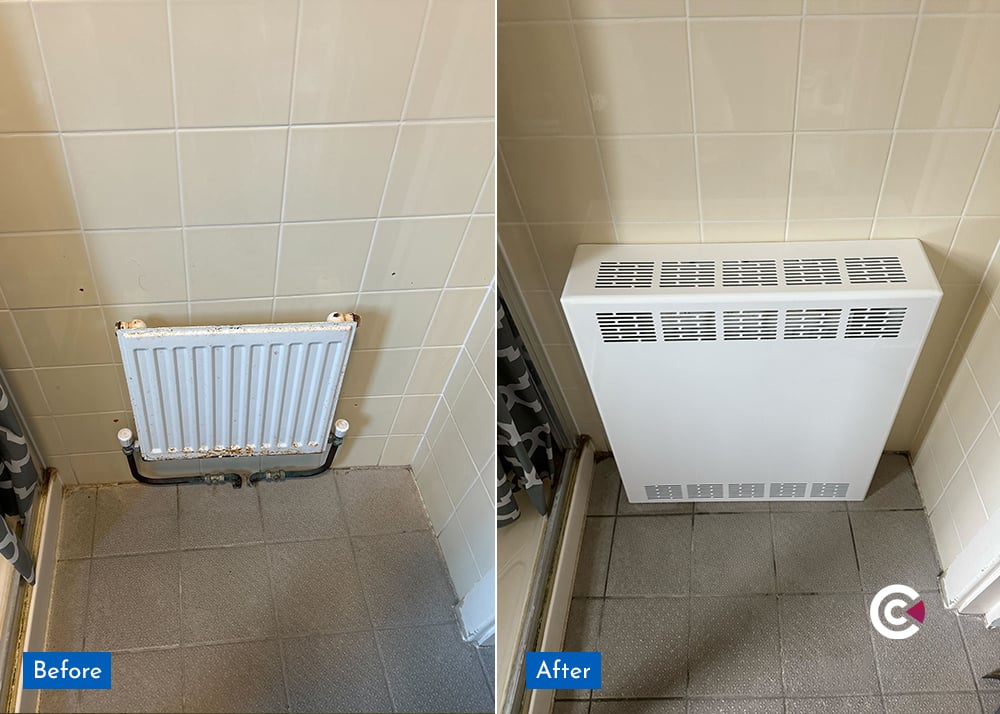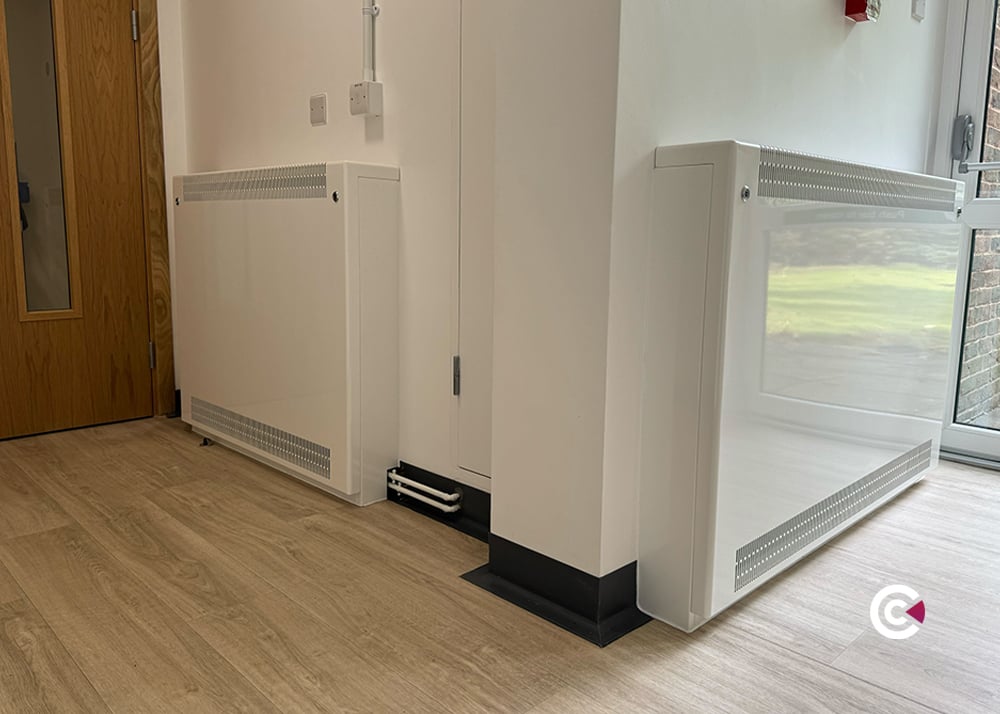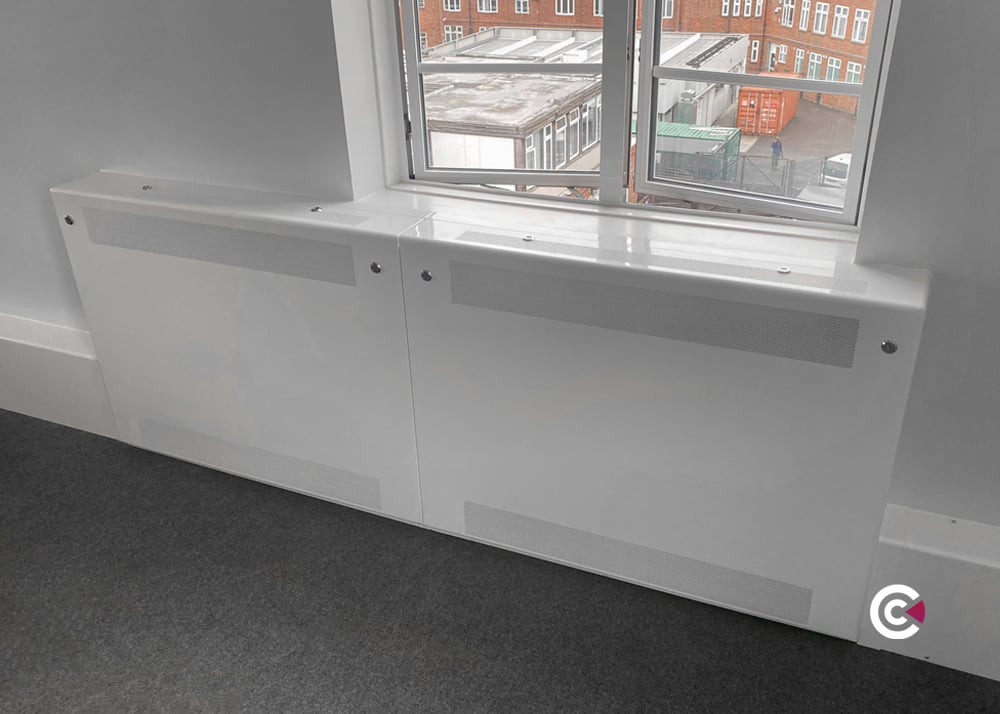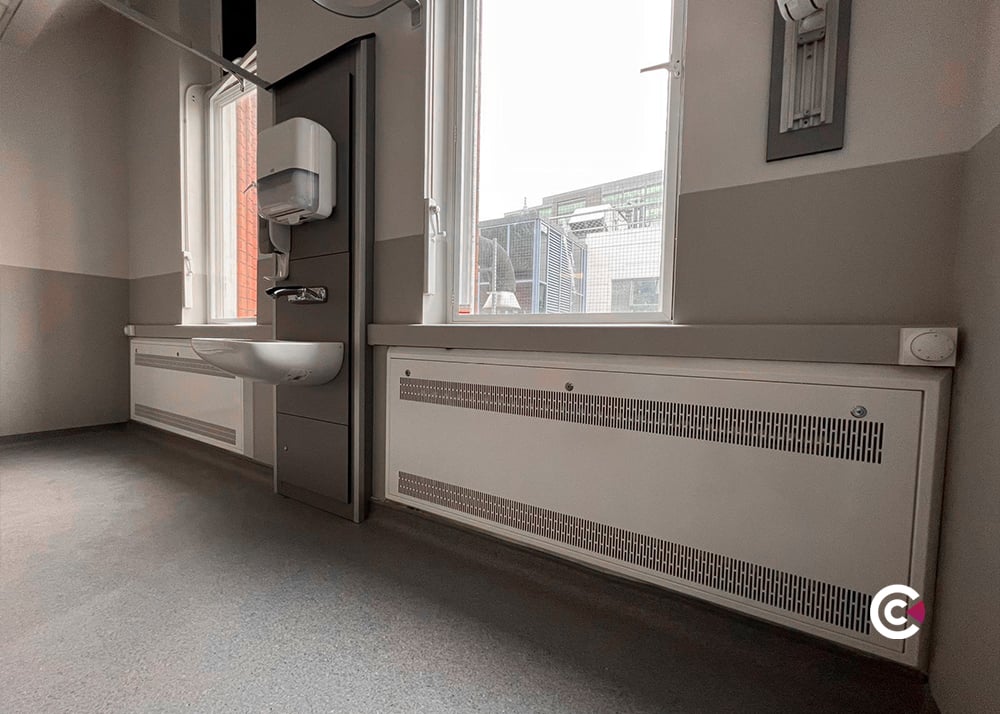When designing a mental healthcare facility, it is fundamental to consider the safety and efficiency of the heating system in order to achieve the primary objectives with seven key design considerations in mental health settings taken into account.
Discover the 7 most common and crucial questions asked when designing or specifying the right heating system in a mental healthcare unit.
Mental Healthcare Heating FAQs
Are there specific safety regulations for heating systems in mental healthcare facilities in the UK?
There are specific regulations and guidelines governing heating systems in healthcare facilities in the UK. To maintain compliance, refer to codes like HTM 03-01 (Specialised ventilation for healthcare premises) and other relevant National Health Service (NHS) guidelines. They provide comprehensive guidance on HVAC and heating system requirements within mental health units to ensure the safety of occupants whilst creating a therapeutic space.
How can we prevent patients from tampering with heating elements in mental healthcare facilities?
To prevent tampering, opt for tamper-resistant heating solutions, such as radiators featuring a full-frame design that eliminates potential security gaps. Select radiators made of 1.5-2mm Zintec Steel construction to ensure robust performance, and ones that utilise security fastenings including Pin Hex and key locks to ensure fast and simple access for staff but prevent unwanted opening by service users.
On top of that, all wall and floor fixing points should be located internally to protect against non-permitted access, removal or manipulation.
Are radiators a good option for mental healthcare facilities?
Yes, radiators are a suitable choice for mental health units, particularly in refurbishment projects. While underfloor heating and ceiling heating panels are popular heating options, they may not be appropriate for mental healthcare settings. When selecting radiators, ensure they are specifically designed for mental healthcare facilities, ensuring anti-ligature safety features (such as IP3X rated grilles) are present to increase resistance against self-harm.
Consult with heating specialists who are familiar with UK healthcare standards to explore the latest heating technologies and products tailored to enhance safety in mental healthcare facilities.
What are the best materials for heating elements and radiators?
Select durable, tamper-resistant materials like heavy-duty 1.5-2mm Zintec Steel or aluminium for radiators and heating elements, meeting the HSE safety standards. These materials can better withstand tampering and are less likely to be damaged by vandalism. Ensure the finishes are easy to clean for maintaining a hygienic environment in line with UK healthcare guidelines.
For wet environments, materials like Magnellis steel would be more suitable. This type of material has undergone an additional treatment stage which makes it more durable, and therefore better suited, to wet environments. The treatment stage is similar to hot-dipped galvanising, but the process is more environmentally friendly, making Magnellis a more sustainable option for these spaces.
Do you need to clean and maintain your radiators in mental health facilities?
Establish a rigorous maintenance schedule for your heating systems, including regular inspections and cleaning. Cleaning behind your radiator has proven to manage the removal of dust mite allergens. In healthcare settings, it's crucial to clean radiators thoroughly at least once a year to mitigate the risk of spreading infections like MRSA and C-difficile. This cleaning also helps manage dust mite allergens, enhancing the occupants' health.
On top of that, incorporate radiator cleaning into your weekly routine to remove dust buildup, a few minutes of removing dust will add up and could lead to a big saving on your facility heating costs by allowing the system to run in an optimal condition.
To facilitate maintenance, ensure your radiators are designed for easy access, for example. the DeepClean Extra has a full drop-down door for thorough cleaning while maintaining hygiene and heating efficiency. A two-piece design can also enable the frame to be sealed to a wall while allowing complete access for cleaning through the drop-down door.
How can we balance patients’ well-being and safety with heating and ventilation in mental health units?
While maintaining tamper-resistant heating in mental health facilities, it's essential to ensure that service users can still have control over the space's temperature. Ambient temperatures that are too high or low pose a risk factor for the worsening or onset of psychiatric disorders. Meteorological factors like heat can impact the major monoamine metabolites of serotonin and dopamine.
Additionally, psychiatric medications like SSRIs and neuroleptics are also linked to heat intolerance so it's crucial that your service users are able to adjust the room temperature according to their needs. By incorporating a design featuring anti-ligature Thermostatic Radiator Valves (TRV), service users can manage their environment, promoting thermal comfort and well-being.
How to minimise ligature and self-harm risks associated with heating in mental healthcare units?
Heating controls can pose ligature risks without proper design. In the UK, it's advisable to employ tamper-resistant and anti-ligature thermostat covers or controls. All heating elements in your facility should be securely mounted and purposefully designed to prevent ligature attachment.
Choose radiators and heating elements equipped with anti-ligature features that adhere to UK safety standards to effectively mitigate the risk of self-harm.
Follow the best practices for safe heating, and ensure that heating systems undergo thorough safety testing in line with UK healthcare standards before installation and periodically thereafter. This evaluation encompasses assessing all components for ligature resistance, impact resistance, and tamper resistance.
Specialist Safe Heating For Mental Health Facilities: DeepClean Extra
The DeepClean Extra range is a specialist heating solution designed in response to real-life challenges encountered in the mental healthcare sector. It ensures the products remain attuned to the evolving and unique needs of the environment, mitigating potential safety risks.
Built with robust and durable 1.5-2mm Zintec Steel or Magnellis Steel for wet rooms, this range is engineered to withstand demanding environments with ease. The anti-ligature design incorporates IP3X-rated grilles tested by a UKAS-accredited laboratory and certified to protect against the ingress of objects greater than 2.5mm in diameter. Anti-ligature TRV kits are also available to allow service users to take control of their heating to increase comfort levels.
Get in touch today and book a free consultation with one of our heating experts to discuss anti-ligature heating solutions for your facilities.
-1.png)


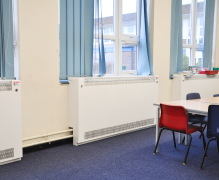
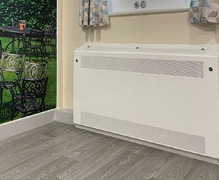
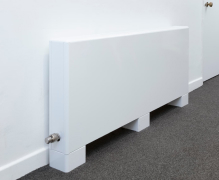
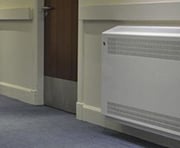
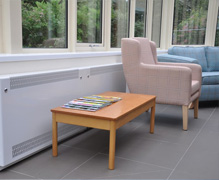

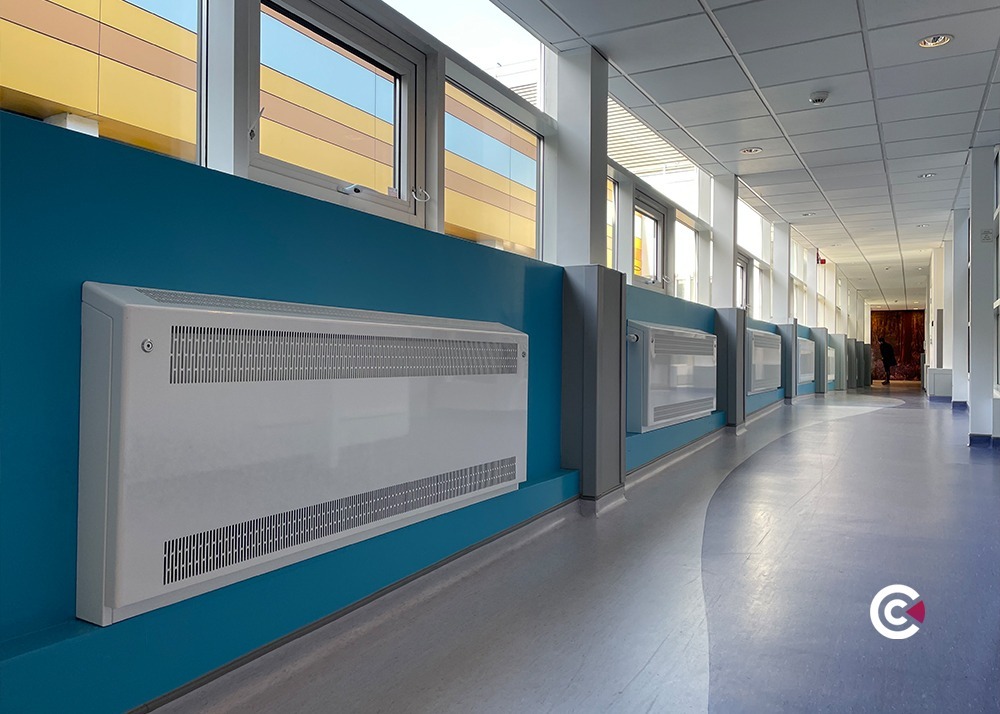
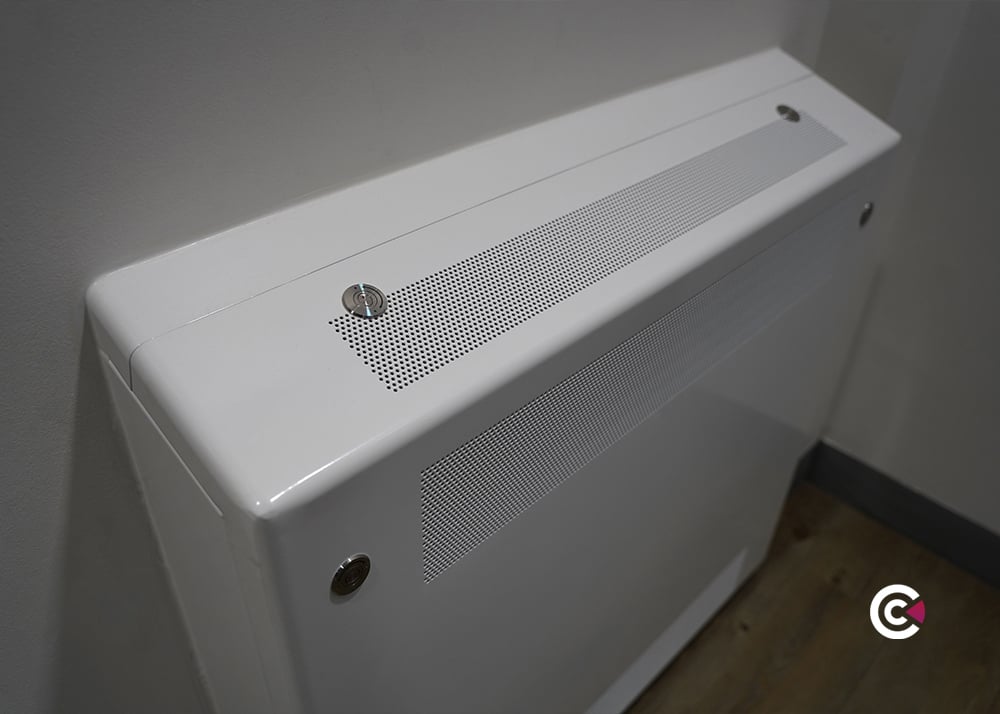

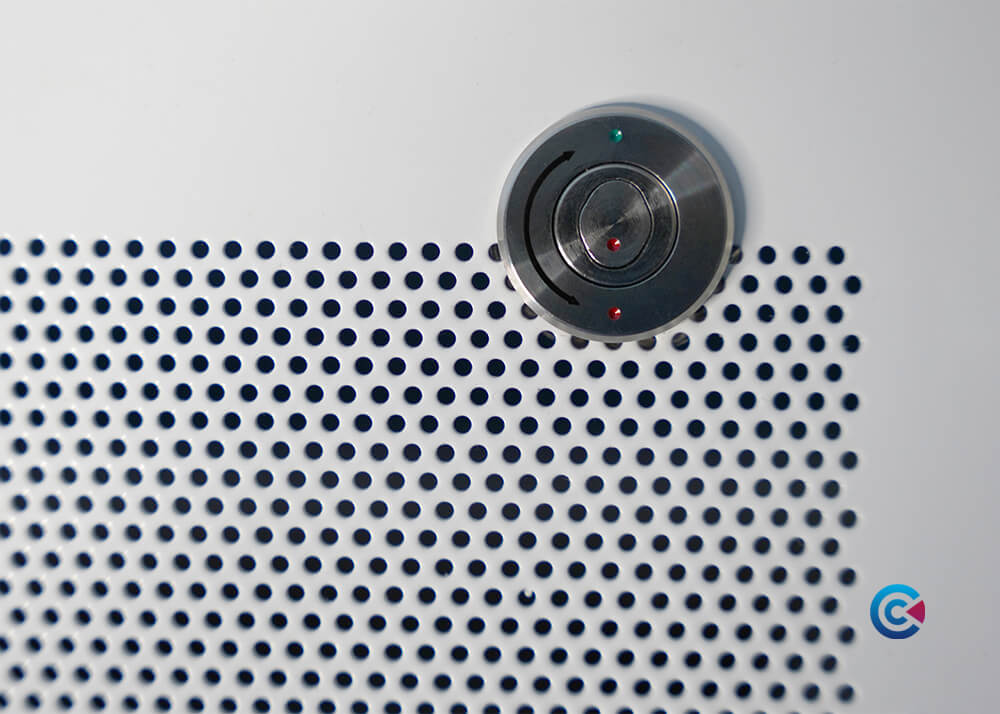





/anti-ligature%20vent%20grilles.jpg)

